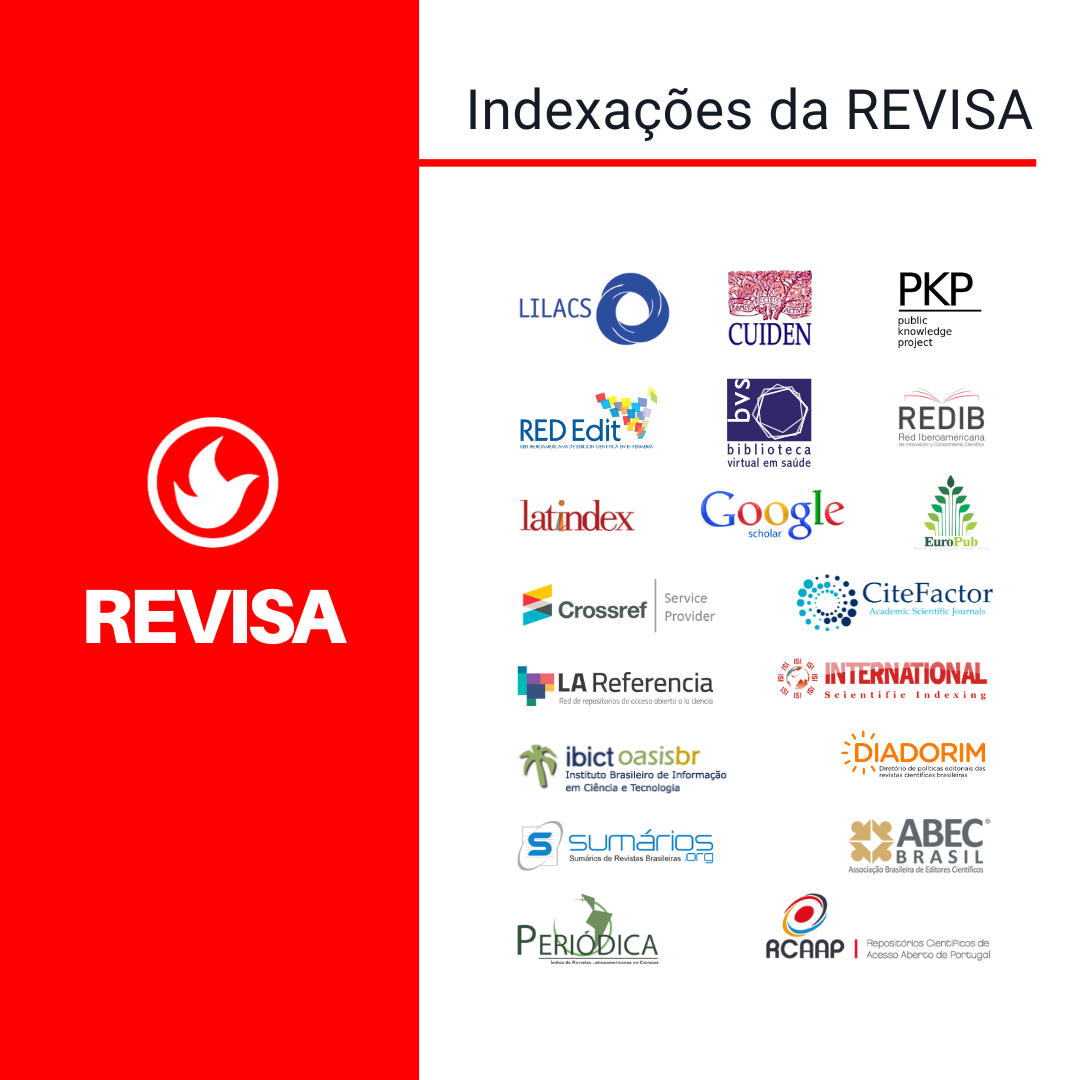The illness experience of people infected by Covid-19
Keywords:
COVID-19, Coping, Mental HealthAbstract
Objective: To describe the illness experience of COVID-19 in people who were infected with the disease in the city of Anápolis, Goiás. Method: A qualitative descriptive study with eight participants, conducted through recorded interviews and videoconferences until theoretical saturation was reached. The data were analyzed using thematic analysis. Results: Two main categories were identified: The illness experience of COVID-19: biopsychosocial aspects and Emotional care in the illness experience of COVID-19: the importance of health professionals. The findings highlight anxiety, fear of death, and social isolation as the main problems faced. Conclusion: The mental and emotional health of infected people should be a priority, with nurses playing a crucial role in comprehensive care.
References
Faro A, Bahiano MA, Nakano TC, Reis C, Silva BFP, Vitti LS. COVID-19 e saúde mental: a emergência do cuidado. Estud Psicol (Campinas). 2020;37
Brasil. Ministério da Saúde. Coronavírus COVID-19. Brasília: MS; 2020.
WHO. COVID-19 Weekly Epidemiological Update; 2021.
Goiás. Secretaria de Estado da Saúde de Goiás (SES-GO). Coronavírus em Goiás; 2021.
Lima CKT. Saúde mental em tempos de pandemia da COVID-19. Rev Bras Psiquiatr. 2020;42(3):289-91.
Desclaux A, Badji D, Ndione AG, Sow K. Accepted monitoring or endured quarantine? Ebola contacts' perceptions in Senegal. Soc Sci Med. 2017;178:38-45.
Hawryluck L, Gold WL, Robinson S, Pogorski S, Galea S, Styra R. SARS control and psychological effects of quarantine, Toronto, Canada. Emerg Infect Dis. 2004;10(7):1206-12.
Jeong H, Yim HW, Song YJ, Ki M, Min JA, Cho J, et al. Mental health status of people isolated due to Middle East Respiratory Syndrome. Epidemiol Health. 2016;38.
Reynolds DL, Garay JR, Deamond SL, Moran MK, Gold W, Styra R. Understanding, compliance and psychological impact of the SARS quarantine experience. Epidemiol Infect. 2008;136(7):997-1007.
Généréux M, Petit G, Maltais D, Roy M, Simard R, Boivin S, et al. Estado de saúde mental da população canadense durante a pandemia de COVID-19. Rev Panam Salud Publica. 2020;44.
Lüdke M, André ME. Pesquisa em educação: abordagens qualitativas. São Paulo: EPU; 1986.
IBGE. Instituto Brasileiro de Geografia e Estatística. Censo Demográfico; 2018.
Anápolis/GO. Prefeitura de Anápolis. Boletim Epidemiológico; 2021.
Fontanella BJB, Ricas J, Turato ER. Saturação teórica em pesquisas qualitativas: contribuições psicanalíticas. Psicol Estud. 2008;13(3):669-75.
Goldman EA. Snowball Sampling. Ann Math Stat. 1961;32(1):148-70.
Baldin N, Munhoz EMB. Snowball (Bola de Neve): uma técnica metodológica para pesquisa em educação ambiental comunitária. In: ANPPAS 2011. Anais do VI Encontro Nacional da ANPPAS; 2011.
Park SC, Park YC. Mental health care measures in response to the 2019 novel coronavirus outbreak in Korea. Psychiatry Investig. 2020;17(2):85-6.
APA. American Psychological Association. Psychologists’ Advice for Newly Remote Workers. Washington, DC: APA; 2020.
Ahmed MZ, Ahmed O, Aibao Z, Hanbin S, Siyu L, Ahmad A. Epidemic of COVID-19 in China and associated Psychological Problems. Asian J Psychiatr. 2020;51:102092.
Peçanha T, Goessler KF, Roschel H, Gualano B. Social isolation during the COVID-19 pandemic can increase physical inactivity and the global burden of cardiovascular disease. Am J Physiol Heart Circ Physiol. 2020;318(6).
Kola L. Global mental health and COVID-19. Lancet Psychiatry. 2020;7(8):655-7.
Xiao C, Zhang Y, Kong D, Li S, Yang D. Social distancing among medical students during the 2019 coronavirus disease pandemic in China: Disease awareness, anxiety disorder, depression, and behavioral activities. Int J Environ Res Public Health. 2020;17(14):5047.
Cullen W, Gulati G, Kelly BD. Mental health in the COVID-19 pandemic. QJM. 2020;113(5):311-2.
Pereira A, Melchior M, Guilherm DAM, Ferreira LMBM, Dias FFF, Martin M. Effects of social isolation and loneliness on mental health during the COVID-19 pandemic. J Am Geriatr Soc. 2020;68(7):1377-9.
Ornell F, Schuch JB, Sordi AO, Kessler FHP. "Pandemia de medo" e COVID-19: impacto na saúde mental e possíveis estratégias. Rev Bras Psiquiatr. 2020;42(3):232-5.
Tully LA, Piotrowska PJ, Collins DAJ, Mairet KS, Hawes DJ, Moul C, et al. Optimising child outcomes from parenting interventions: fathers' experiences, preferences and barriers to participation. BMC Public Health. 2019;19(1):1-14.
WHO. State of the world’s nursing 2020: investing in education, jobs and leadership. Geneva: World Health Organization; 2020.
Roecker S, Lino MM, Ferraz MA, Marcon SS. The use of social media in the teaching-learning process. Cogitare Enferm. 2011;16(3):430-6.
Waldow VR. Enfermagem: prática e espiritualidade. Rev Bras Enferm. 2008;61(1):29-34.
Araújo TM, Silva MTA. Enfermagem e a pandemia da COVID-19. Rev Bras Enferm. 2012;73(supl 2)
Downloads
Published
How to Cite
Issue
Section
License
Copyright (c) 2024 Revista de Divulgação Científica Sena Aires

This work is licensed under a Creative Commons Attribution 4.0 International License.
-
Atribuição — Você deve dar o crédito apropriado, prover um link para a licença e indicar se mudanças foram feitas. Você deve fazê-lo em qualquer circunstância razoável, mas de nenhuma maneira que sugira que o licenciante apoia você ou o seu uso.
- Sem restrições adicionais — Você não pode aplicar termos jurídicos ou medidas de caráter tecnológico que restrinjam legalmente outros de fazerem algo que a licença permita.





